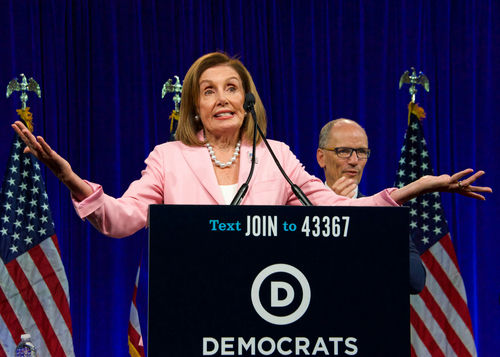
Equity Bank CEO Touts Kenya’s ‘Consistent Improvement’
August 3, 2025
This AI Replaces Your Team’s Memory!
August 3, 2025Shocking NASA-Russia Meeting Defies Sanctions
In a world where political tensions are as unpredictable as a Texas tornado, a Russian space chief and NASA head meet face-to-face for the first time in eight years, rekindling a cooperation that defies geopolitical odds.
Rekindling Space Diplomacy Amid Tensions
For the first time since 2017, the head of Russia’s space agency, Roscosmos, Dmitry Bakanov, has stepped onto American soil to engage in high-stakes talks with NASA. Such a meeting, occurring in Houston, Texas, is an oasis of cooperation in a desert of political discord. These discussions are set against the backdrop of Russia’s continued geopolitical isolation following its aggressive actions in Ukraine, which have led to severe Western sanctions. Yet, here we are, witnessing a rare moment of collaboration in the field of space exploration, an area where mutual reliance still holds sway.
The agenda is as ambitious as it is critical, covering the continuation of the cross-flight program and the future of the International Space Station (ISS). The meeting also includes discussions about the eventual de-orbiting of the ISS, a pivotal piece of infrastructure that has epitomized international cooperation in space since 1998. Despite the political frost, NASA and Roscosmos show a willingness to keep the lines of communication open, acknowledging that space exploration transcends terrestrial squabbles.
The Strategic Necessity of Cooperation
The ongoing cooperation between NASA and Roscosmos is not just a diplomatic nicety; it’s a strategic necessity. Since the inception of the ISS, both agencies have been dependent on each other’s hardware and expertise. Without Russian modules, the ISS cannot function, and without American commercial vehicles like those provided by SpaceX and Boeing, crew rotations would face significant challenges. This interdependence means that regardless of the political climate, both agencies must find ways to work together to ensure the continuous operation of the ISS.
As the ISS approaches the twilight of its operational life, discussions about its extension and decommissioning become ever more urgent. Both NASA and Roscosmos have a vested interest in ensuring that this process is handled safely and efficiently. However, the question remains: how long can such cooperation last amid the ongoing geopolitical rifts?
Challenges and Opportunities Ahead
Despite the cooperative efforts, the challenges are manifold. Russia’s space program has faced chronic underfunding and technical setbacks, highlighted by the recent failure of their Luna-25 lunar probe. These issues put added pressure on Roscosmos to maintain its relevance in the global space sector. Meanwhile, U.S. commercial space providers are increasingly reducing reliance on Russian hardware, showcasing their growing capabilities in space logistics and crew transport.
Yet, this meeting in Houston signifies more than just a continuation of existing agreements; it’s a signal to the world that even in times of political strife, the spirit of exploration and discovery can bridge divides. For the scientific community and international partners like ESA and JAXA, this meeting is a reassurance that the ISS will continue to serve as a hub for groundbreaking research and international collaboration.
Looking Forward: The Future of Space Cooperation
The implications of this meeting are significant for both the short and long term. In the immediate future, it ensures that ISS operations continue without disruption, providing stability to the crew and support teams involved. In the long term, it sets a precedent for pragmatic engagement in critical sectors, potentially influencing how future space projects and governance are approached.
Economically, the continuation of ISS operations supports jobs and contracts in both the U.S. and Russia. Socially, it maintains a rare channel for U.S.-Russia engagement, showing that cooperation can prevail even when politics threaten to tear it apart. Politically, it demonstrates that space can be a compartmentalized area of cooperation, distinct from broader conflicts.
Sources:

C. Rich is the voice behind America Speaks Ink, home to the America First Movement. As an author, freelance ghostwriter, poet, and blogger, C. Rich brings a “baked-in” perspective shaped by growing up on the streets and beaches of South Florida in the 1970s-1980s and brings a quintessential Generation-X point of view.
Rich’s writing journey began in 2008 with coverage of the Casey Anthony trial and has since evolved into a wide-ranging exploration of politics, culture, and the issues that define our times. Follow C. Rich’s writing odyssey here at America Speaks Ink and on Amazon with a multi-book series on Donald Trump called “Trump Era: The MAGA Files” and many other books and subjects C. Rich is known to cover. CRich@AmericaSpeaksInk.com
“America Speaks Ink is a Google News approved source for Opinion”





